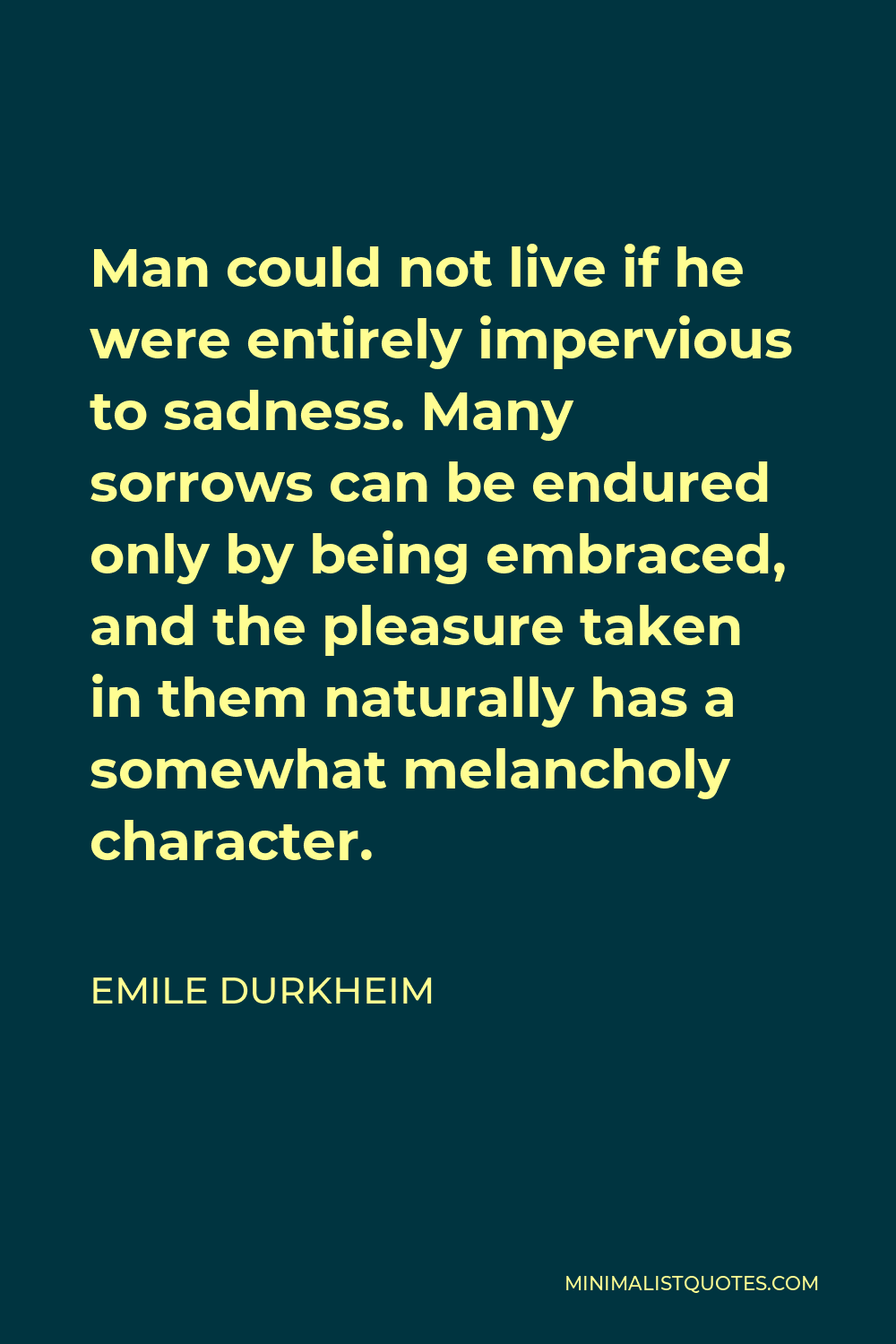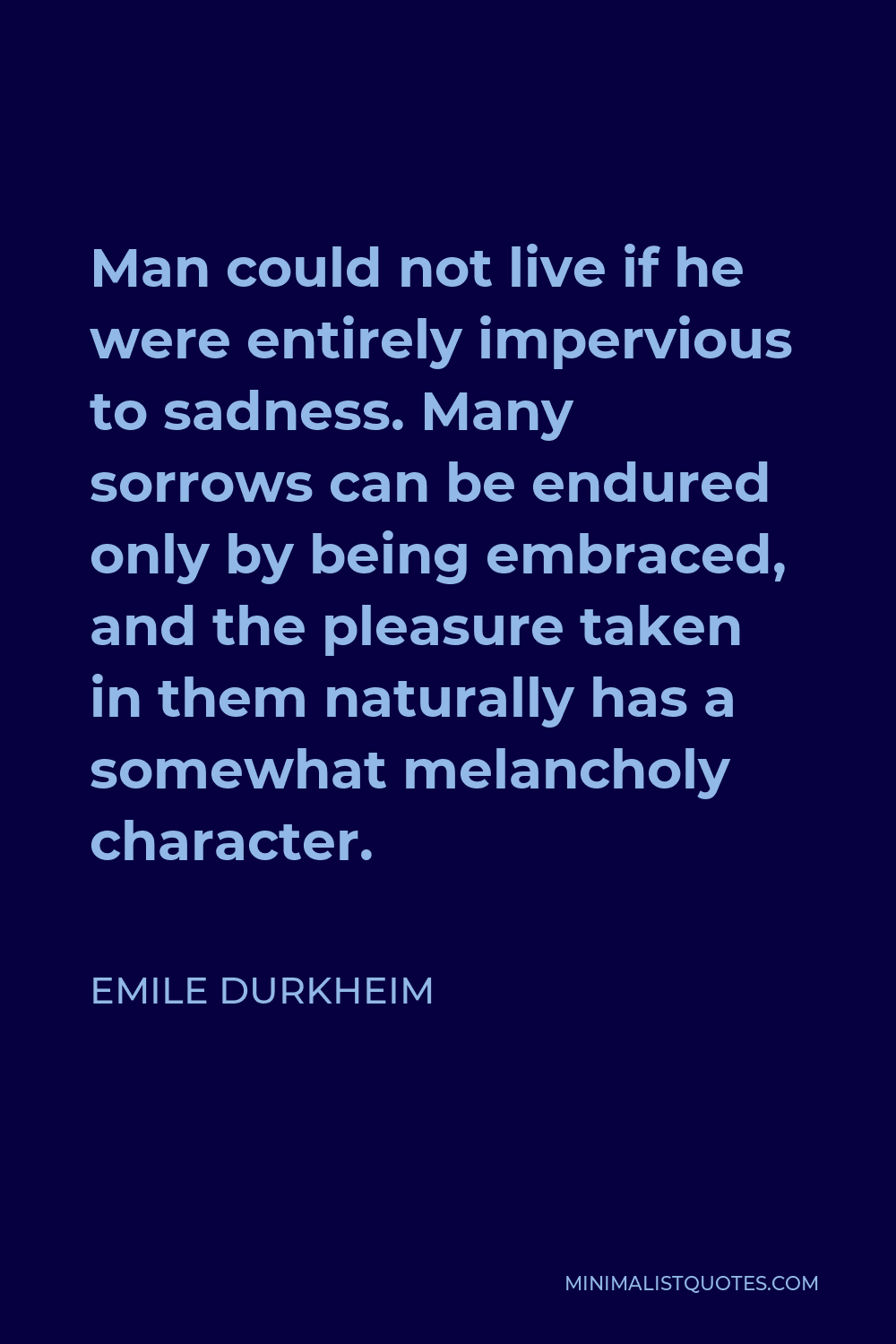When mores are sufficient, laws are unnecessary. When mores are insufficient, laws are unenforceable.
EMILE DURKHEIMMan could not live if he were entirely impervious to sadness. Many sorrows can be endured only by being embraced, and the pleasure taken in them naturally has a somewhat melancholy character.
More Emile Durkheim Quotes
-





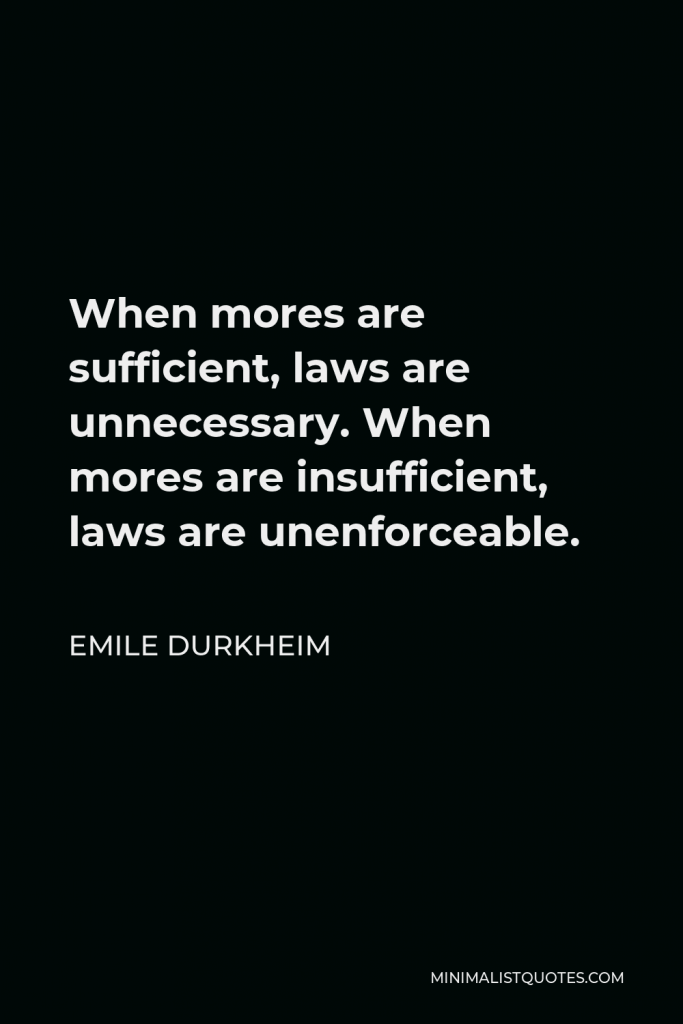

-







A mind that questions everything, unless strong enough to bear the weight of its ignorance, risks questioning itself and being engulfed in doubt.
EMILE DURKHEIM -





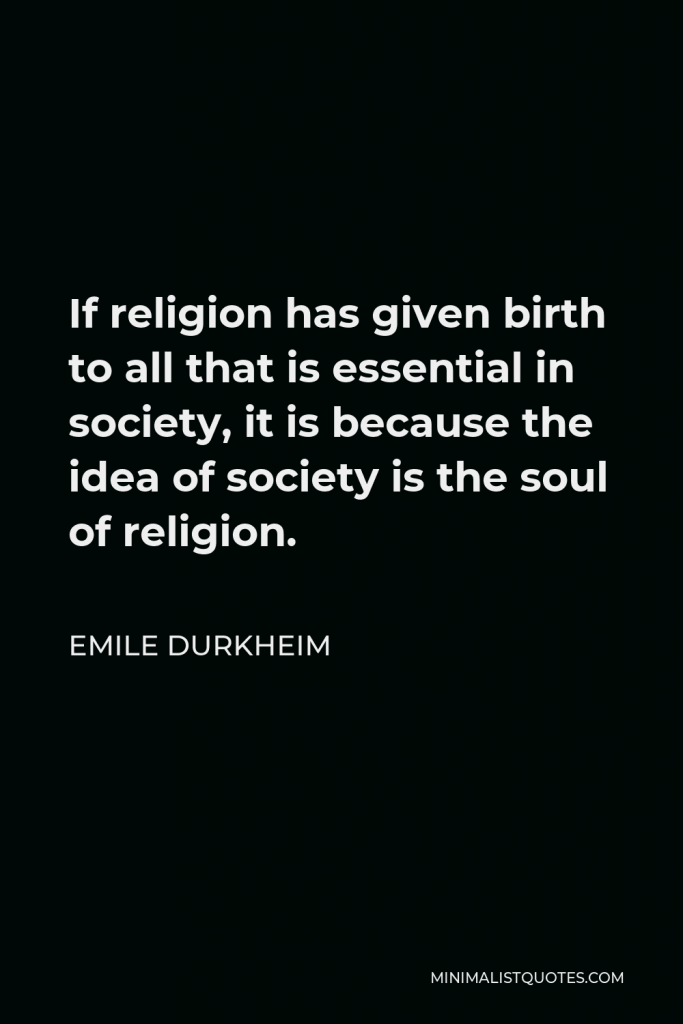

If religion has given birth to all that is essential in society, it is because the idea of society is the soul of religion.
EMILE DURKHEIM -





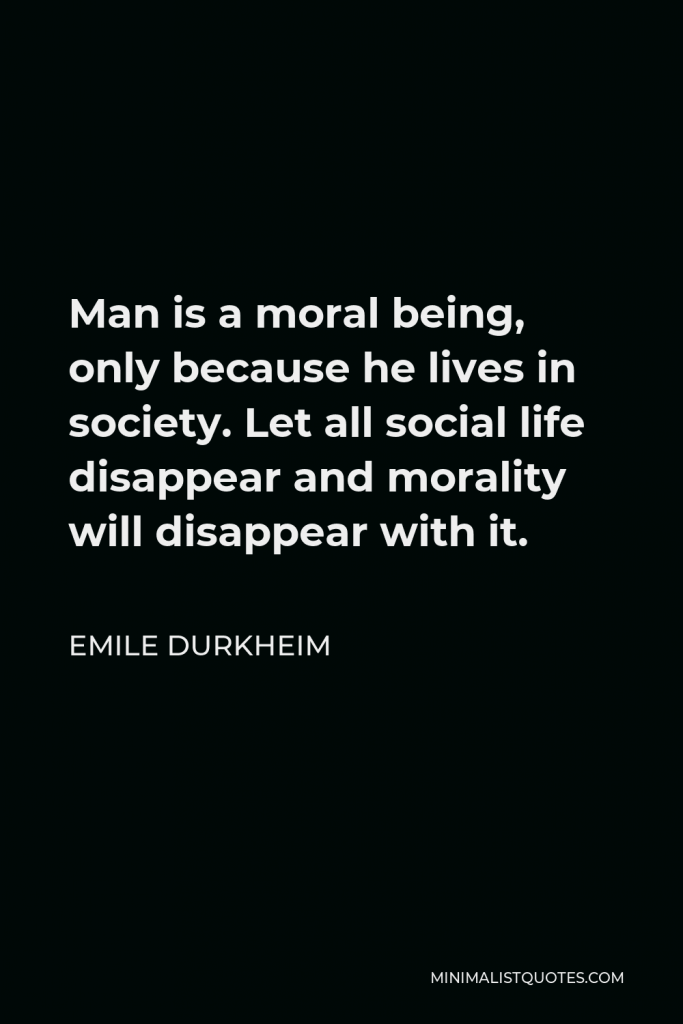

Man is a moral being, only because he lives in society. Let all social life disappear and morality will disappear with it.
EMILE DURKHEIM -





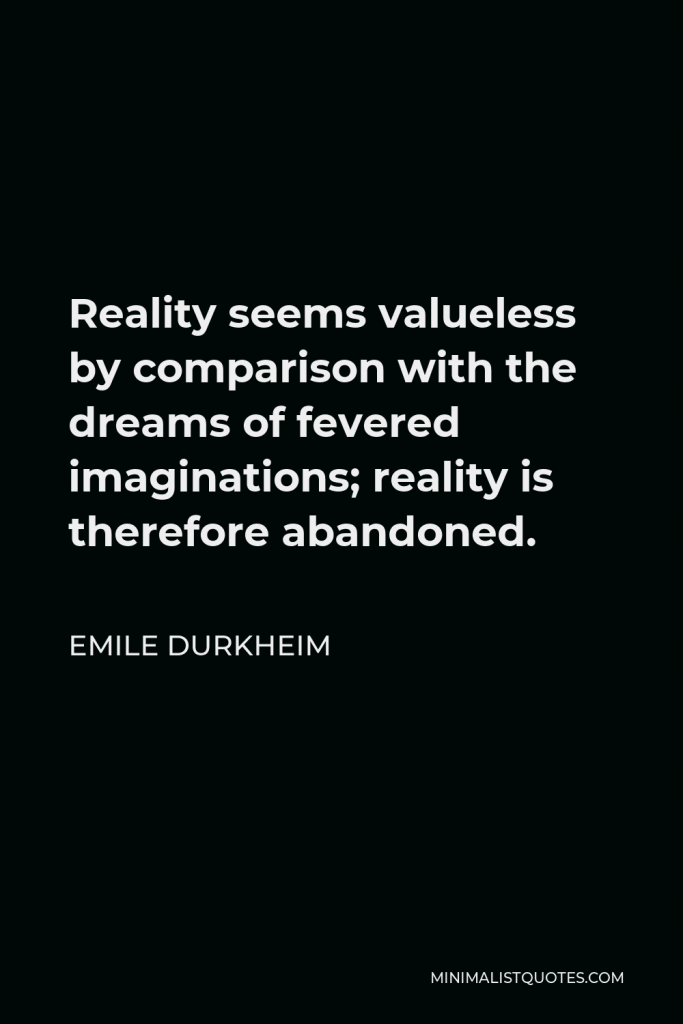

Reality seems valueless by comparison with the dreams of fevered imaginations; reality is therefore abandoned.
EMILE DURKHEIM -







Too cheerful a morality is a loose morality; it is appropriate only to decadent peoples and is found only among them.
EMILE DURKHEIM -





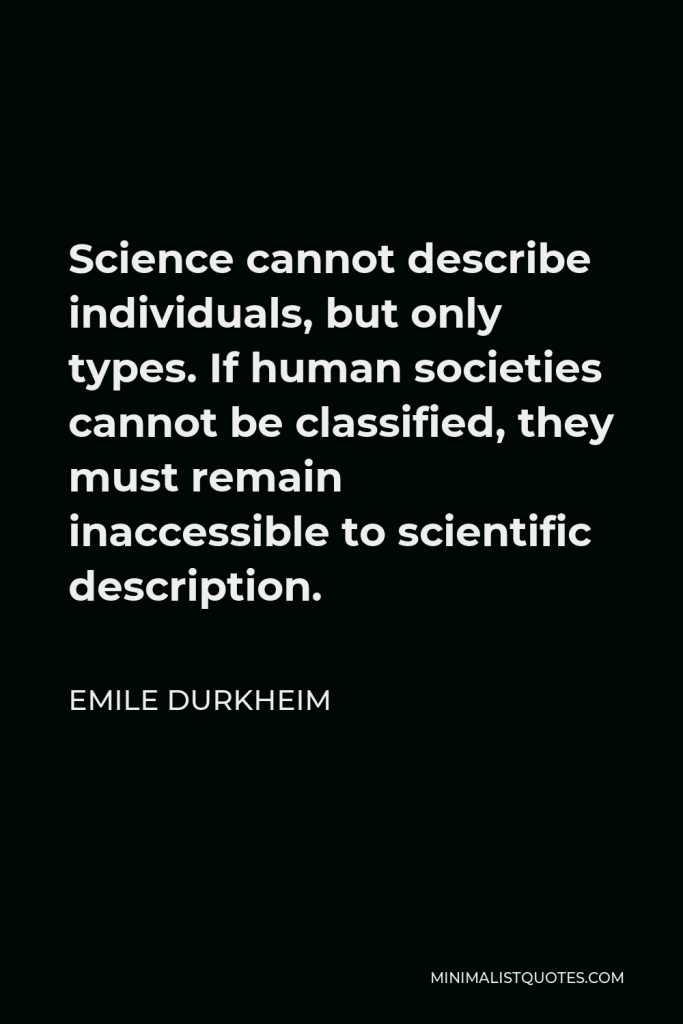

Science cannot describe individuals, but only types. If human societies cannot be classified, they must remain inaccessible to scientific description.
EMILE DURKHEIM -







The term suicide is applied to all cases of death resulting directly or indirectly from a positive or negative act of the victim himself, which he knows will produce this result
EMILE DURKHEIM -





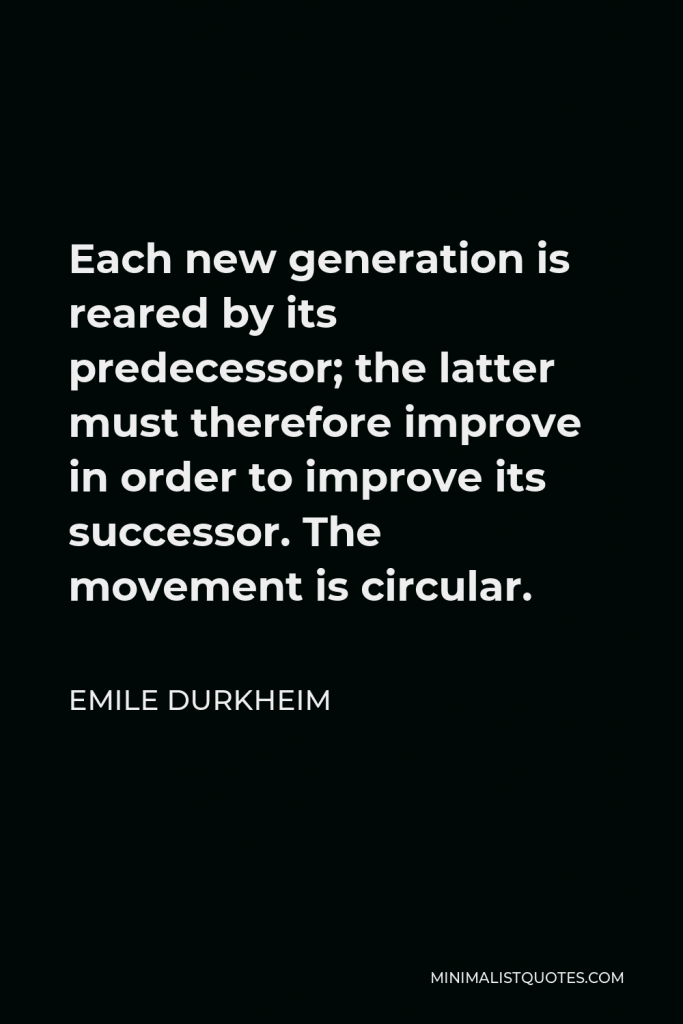

Each new generation is reared by its predecessor; the latter must therefore improve in order to improve its successor. The movement is circular.
EMILE DURKHEIM -





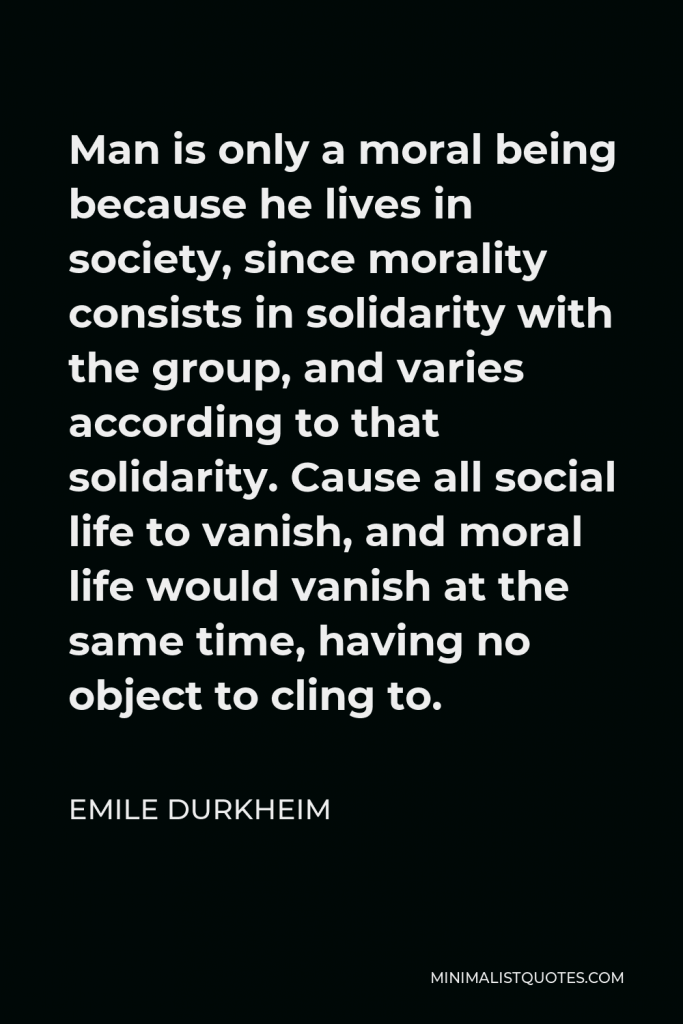

Man is only a moral being because he lives in society, since morality consists in solidarity with the group, and varies according to that solidarity. Cause all social life to vanish, and moral life would vanish at the same time, having no object to cling to.
EMILE DURKHEIM -





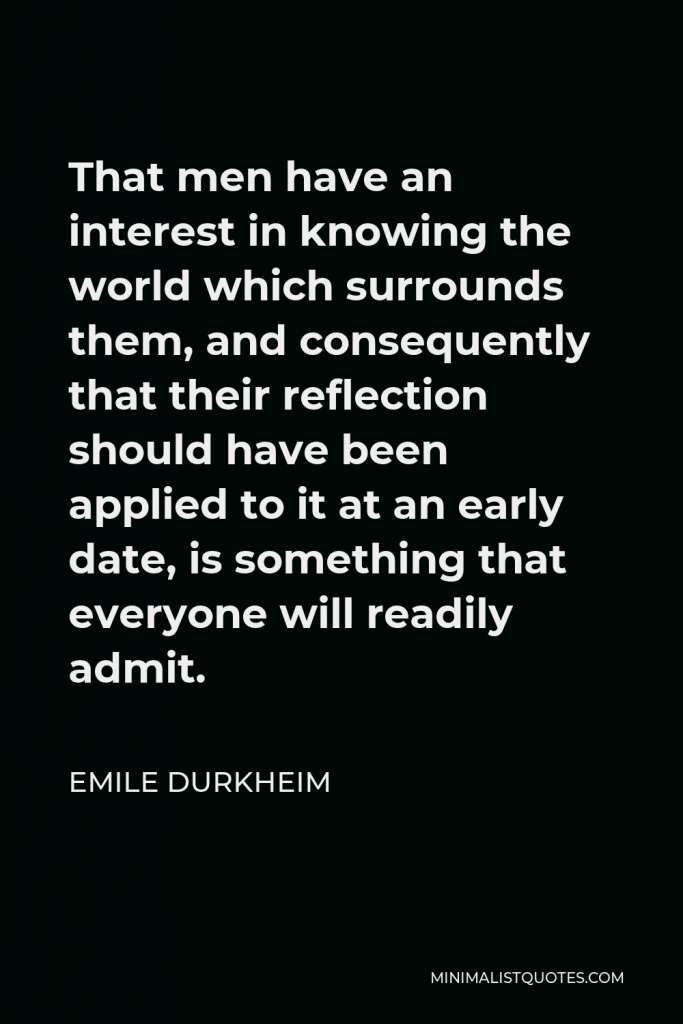

That men have an interest in knowing the world which surrounds them, and consequently that their reflection should have been applied to it at an early date, is something that everyone will readily admit.
EMILE DURKHEIM -





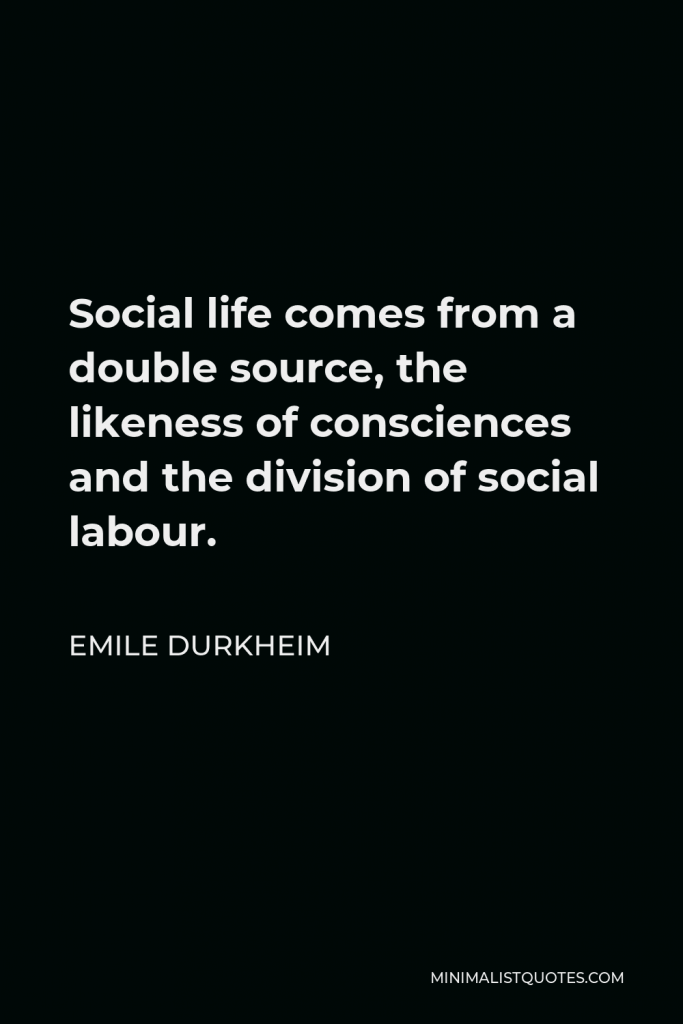

Social life comes from a double source, the likeness of consciences and the division of social labour.
EMILE DURKHEIM -





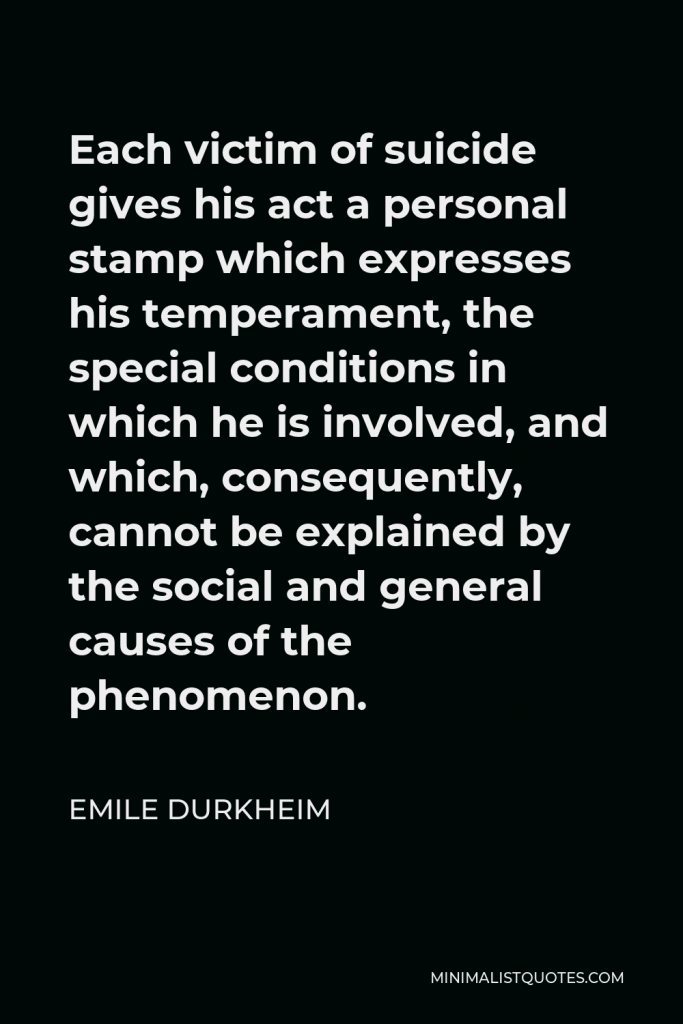

Each victim of suicide gives his act a personal stamp which expresses his temperament, the special conditions in which he is involved, and which, consequently, cannot be explained by the social and general causes of the phenomenon.
EMILE DURKHEIM -





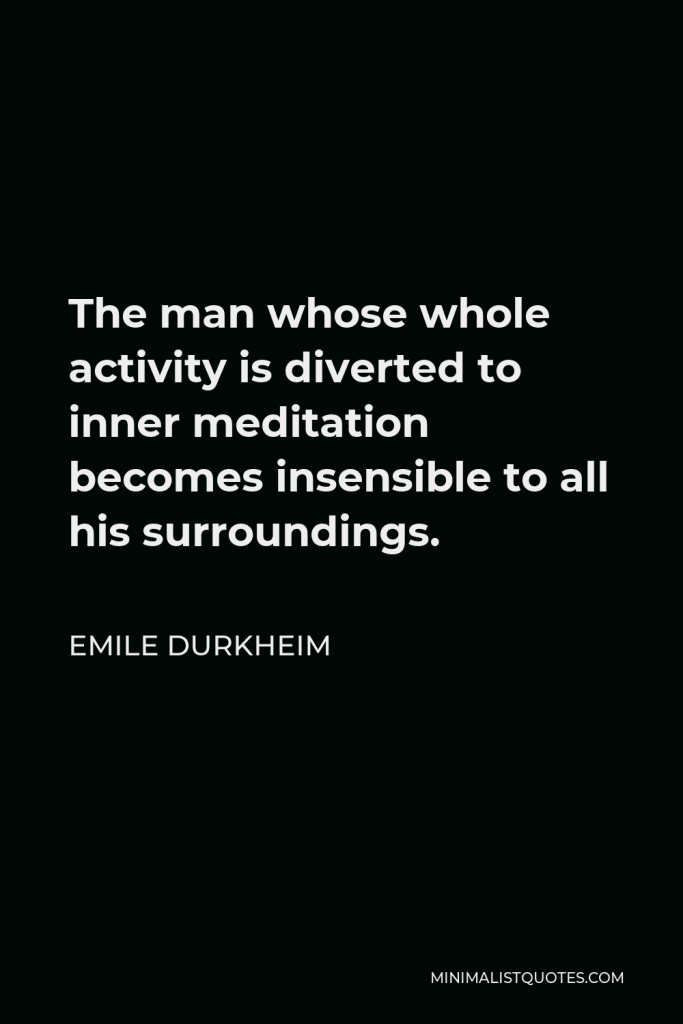

The man whose whole activity is diverted to inner meditation becomes insensible to all his surroundings. His passions are mere appearances, being sterile. They are dissipated in futile imaginings, producing nothing external to themselves.
EMILE DURKHEIM -







We do not condemn it because it is a crime, but it is a crime because we condemn it.
EMILE DURKHEIM -







I can be free only to the extent that others are forbidden to profit from their physical, economic, or other superiority to the detriment of my liberty.
EMILE DURKHEIM

